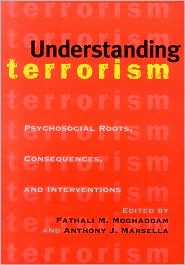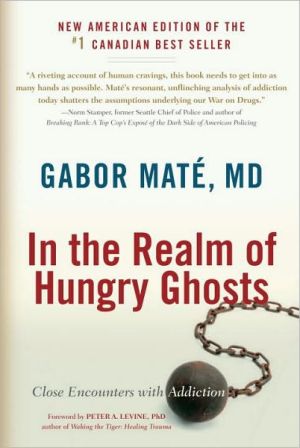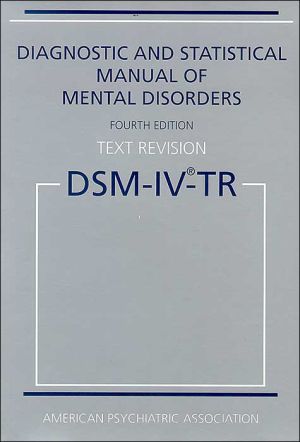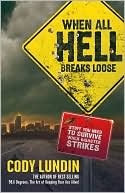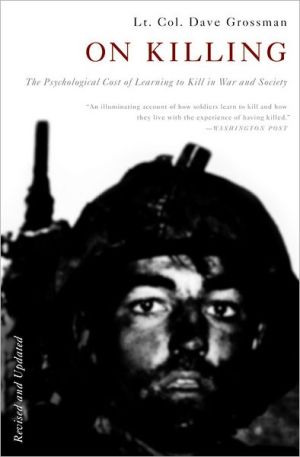Understanding Terrorism: Psychological Roots, Consequences and Interventions
Understanding Terrorism: Psychosocial Roots, Consequences, and Interventions brings the powerful resources of psychological science to bear on the issue of terrorism. Terrorism by definition attempts to change the psychological state of its targets, so psychologists are well positioned to cast light on this phenomenon. In this volume, leading international experts conduct an incisive analysis of the psychosocial basis of terrorism and suggest ways to prevent it, including both strategies to...
Search in google:
Understanding Terrorism: Psychosocial Roots, Consequences, and Interventions brings the powerful resources of psychological science to bear on the issue of terrorism. Terrorism by definition attempts to change the psychological state of its targets, so psychologists are well positioned to cast light on this phenomenon. In this volume, leading international experts conduct an incisive analysis of the psychosocial basis of terrorism and suggest ways to prevent it, including both strategies to eliminate the conditions that give rise to terrorism and effective ways to treat victims of terrorism. Social psychologists, therapists, and social workers as well as political scientists and lawmakers will find this volume to be indispensable. Doody Review Services Reviewer:Nicholas Greco IV, MS, BCETS, CATSM(Abbott Laboratories)Description:This book represents the author's successful attempt to assess the psychological origins and ultimately the consequences that result from terrorism. It is written in a nonbiased, nonjudgmental way and examines various perspectives of terrorists.Purpose:The purpose is to provide a multidisciplinary and multicultural approach to the examination of terrorism. It is through this examination that the reader is given a comprehensive awareness and understanding of the complexity of terrorism. In light of the present state of affairs, this book exceeds the authors' objectives.Audience:What truly stands out about this book is that it is highly readable, not only for seasoned psychologists, academics, and researchers, but also for undergraduate students and the general public. The chapters are written by notable experts in the field whose credibility is without question.Features:This book examines opposing viewpoints on what terrorism is and argues that the rationale given by terrorists for their acts is not in retaliation to a supposed injustice but is much more complex. The acts themselves have psychological meanings, and current explanations and definitions of terrorism are explored in detail. What is also noteworthy is the author's frank and objective examination of the relationship between the U.S. and Israel. Much attention is given to the cultural differences, counterterrorism, and the quest for peace. The chapter on psychology's response to terrorism is quite moving and a must-read.Assessment:This book easily can stand alone as both a primer and as additional reading on terrorism. It truly is a scholarly work deserving the designation as the definitive source for understanding terrorism.
Terrorism: Reflections on Issues, Concepts, and Directions Anthony J. Marsella Dishonest Crimes: Dishonest Language: An Argument About Terrorism Brien Hallett Peace and War in the Middle East: A Psychopolitical and Sociocultural Perspective Naji Abi Hashem The Social Construction of Terrorism Rom HarrJ Cultural Preconditions for Potential Terrorist Groups: Terrorism and Societal Change Fathali Moghaddam The Origins and Consequences of Moral Disengagement: A Social Learning Perspective Albert Bandura Understanding and Responding to Group Violence: Genocide, mass Killing, Terrorism Erwin Staub Terrorism and The Quest for Identity Donald Taylor and Winifred Lewis Malevolent Minds: The Teleology of Terrorism Thomas Ditzler Terrorism: Peace Psychology Perspectives Richard W. Wagner and Katherine R. Long The Psychosocial Aftermath of Terrorism Yael Danieli,Brian Engdahl, and William E. Schlenger Terrorism and the mental Health and Well-Being Of Refugees and Displaced People Michael G. Wessells Psychology's Response to Terrorism Robert F. Levant, Laura Barbanel, and Patrick DeLeon
\ From The CriticsReviewer: Nicholas Greco IV, MS, BCETS, CATSM(Abbott Laboratories)\ Description: This book represents the author's successful attempt to assess the psychological origins and ultimately the consequences that result from terrorism. It is written in a nonbiased, nonjudgmental way and examines various perspectives of terrorists.\ Purpose: The purpose is to provide a multidisciplinary and multicultural approach to the examination of terrorism. It is through this examination that the reader is given a comprehensive awareness and understanding of the complexity of terrorism. In light of the present state of affairs, this book exceeds the authors' objectives.\ Audience: What truly stands out about this book is that it is highly readable, not only for seasoned psychologists, academics, and researchers, but also for undergraduate students and the general public. The chapters are written by notable experts in the field whose credibility is without question.\ Features: This book examines opposing viewpoints on what terrorism is and argues that the rationale given by terrorists for their acts is not in retaliation to a supposed injustice but is much more complex. The acts themselves have psychological meanings, and current explanations and definitions of terrorism are explored in detail. What is also noteworthy is the author's frank and objective examination of the relationship between the U.S. and Israel. Much attention is given to the cultural differences, counterterrorism, and the quest for peace. The chapter on psychology's response to terrorism is quite moving and a must-read.\ Assessment: This book easily can stand alone as both a primer and as additional reading on terrorism. It truly is a scholarly work deserving the designation as the definitive source for understanding terrorism.\ \ \ 4 Stars! from Doody\ \
